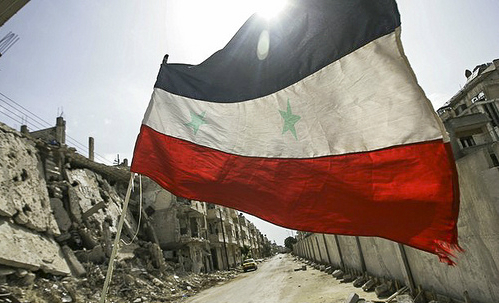
The Syrian civil war, which has seen a stalemate for nearly three years, shows no signs of a negotiated political solution. The Geneva II peace talks, that opened on 22 January, are highly unlikely to result in a breakthrough, absent a miracle. There is irreconcilable tension between the oppositional Syrian National Coalitions’s (SNC) demand for a future Syria without President Bashar Al-Assad and Al-Assad government’s policy priority to secure international support to fight what it calls rebellious terrorists. That may well leave a military victory, either by the government or the opposition rebels, as the final option to break out of the deadlock.
If this were to happen, three recent developments seem to favor a possible win by Bashar Al-Assad. First, in recent weeks, government troops have recorded some notable military successes by reversing rebel territorial gains in the south and eastern parts of Syria and by stamping them out from areas adjacent to Damascus. Secondly, the continued infightings between rebel groups, particularly between the Islamic State of Iraq and the Levant (ISIL) and other moderate Islamist groups are damagingly reducing their fighting capacities against government troops. Thirdly, international support for the rebels is gradually drying out. The SNC agreed to join Geneva II peace negotiations after the US and Britain had threatened to withdraw support for them.[1] A win by President Bashar Al-Assad would, however, inevitably affect the interests and strategic matrices of the regional powers deeply involved in the Syrian civil war – Iran, Israel, Qatar, Saudi Arabia and Turkey. This point is explained below by highlighting what drove each of the parties to take sides in the civil war and what they stand to win or lose in Syria if Bashar Al-Assad stays in power.
